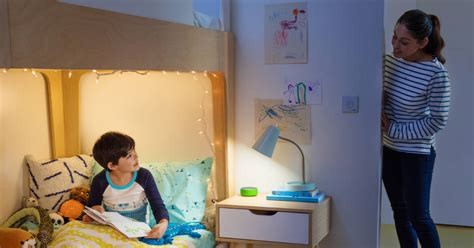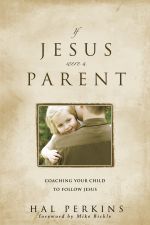Living from the Heart
A friend posted a link to this article, titled “What Not to Say to a Working Mother.” It’s a good article, and it really raised my awareness. What’s interesting to me is that though I doubt that I would ever actually say any of the things on the list, it includes things I have heard working moms say themselves. I don’t know any working mothers who are without angst about it at some level.
But I am not without my share of angst about my chosen parenting course either. The article got me thinking about things people have said that have bothered me, and I initially thought I might post my own list of things not to say to a stay-at-home mom. But someone else has already done it. (I could only really relate to #6, but it’s a pretty funny list.)
The thing about me is that it doesn’t even have to be said to me to bug me; overhearing something said to or about someone else gets included in the accounting, thanks to the distributive property of Janet. So hearing someone say of another mom with an advanced degree, “…and now she’s at home with all those children!” (sympathetic shake of the head) — that counts as an insult to me. Hearing someone say to another mom who has just re-entered the work force and has said she would rather be at home, “Now you’re a mother and a professional” — that counts too. It doesn’t matter that in cases like this, the people are honestly trying to affirm some gifting in the women of/to whom they speak. I absorb the negative — like some bacteria-eating organism.
That’s not to say there aren’t times I’ve gotten it full in the face. There was the time when my oldest was still in diapers and we bought a car in my name. The loan officer approved the loan, but as we left the office she said nervously, “Just be sure you go back to work soon!” Or the time I wrote a check at a local grocery store and watched the clerk write “unemployed” across the top because my husband was the breadwinner. Or the many times I feel that inward flinch in response to the common and harmless question, “Where do you work?”
I could go on. I often feel like I get the double stigma of being both a SAHM and a homeschooler, each with its own caricature. But the truth is, I see these things as very personal decisions. It’s one of the reasons I’d never tell someone else they should home school. I know from my own parents’ experience as public school teachers that some children receive better basic care and nurture in school than they do at home; I remember my mother having to ask parents repeatedly if she could supply their children with winter coats because they were coming to school in hooded sweatshirts in New York winters. Recently I heard a news story about school lunches being some children’s main source of nutrition, making them dread vacations.
As a Christian I regard these choices as issues of calling and vocation (to the extent that they aren’t dictated by financial imperatives), for which God has unique purposes for all of us. I don’t know how long I’ll be staying at home or home educating, but I know it’s where I’m supposed to be for now. I try not to talk about it a lot with friends who see their role differently because it seems that most of us have just enough insecurity to feel judged by others’ choices at times, even if they don’t say as much in words. It’s as though we hear things like the statements on the lists mentioned above, whether they are actually said or not.
 This is part of living in community: managing the tension of such differences. I guess it’s now obvious that I don’t always manage it very well myself. But lately I have been realizing that my level of security in my chosen life path doesn’t depend on others learning to self-censor around me. It depends on my ability to live from the heart.
This is part of living in community: managing the tension of such differences. I guess it’s now obvious that I don’t always manage it very well myself. But lately I have been realizing that my level of security in my chosen life path doesn’t depend on others learning to self-censor around me. It depends on my ability to live from the heart.
That’s something John Eldredge talks about a lot — living from the heart. It always sounds inspiring to me, yet only very recently have I begun to understand what it means. It means operating from that core deep down inside that holds firmly to what I believe. I may spend a great deal of energy stewing over surface issues and slights and insensitivity, but if I really cared about all that I could change. I could stop homeschooling and go to work. I could try to become more like the product it sometimes seems like people would prefer me to be. I don’t because at heart, I really don’t want to. I’m finally aware of that deeper place within, that place that’s unmoved by the surface storms. That’s where the power is anyway; why not learn to dwell there deliberately?
Again, I think of John Eldredge: “Let other people feel the weight of who you are, and let them deal with it.” It sounds kind of insensitive. But I have a feeling that it’s key to other people feeling equally free to be who they are when they’re around us. It’s not about my many trip-wires that detonate a blast of insecurity whenever you unsuspectingly step on one; my list of things I wish you wouldn’t say goes out the window. It’s about me being centered in my own heart where, as a Christian, I believe God is directing me through my deepest desires and serving as my most — really, my only — significant audience.



4 Comments
Amy @ Hope Is the Word
This resonates a lot with me, Janet. I just finished reading Desperate by Sarah Mae and Sally Clarkson. I recommend it. It gets at a lot of these issues in a very encouraging way.
I think the thing I find myself doing the most is just avoiding people from my former work life. I know a lot of teachers, so the question of where my children go to school inevitably comes up. Due to the persistent stigma of homeschooling among many educators in our area, it’s just a conversation I’d rather not have.
Janet
I will look for ‘Desperate.’ I remember liking ‘Seasons of a Mother’s Heart.’ It was inspiring in a gentle way, and it got me thinking about vision. Thanks, Amy.
Barbara H.
The one question I most dislike for SAHMs I didn’t see on the list: “So what do you DO all day?”
About the worst-ever awkward statement I’ve ever heard of was one I just heard of yesterday. Our pastor was telling of an event the church hosted for Mothers Against Drunk Driving in honor of a family in our church whose daughter died in a car accident, hit by a drunk driver. In line for refreshments, one of the men who had lost a son was talking to our assistant pastor’s wife, whose husband is a paraplegic from a car accident, and said of his son that one consolation was that at least he was in heaven and didn’t have to spend the rest of his life in a wheelchair. Ack! She took it well — she just said, “Yes, that would be really bad.”
I think whatever we do there are things people can say that can hit us the wrong way. A friend of mine gets upset when people see her out with her kids and remark that her hands are full. I don’t get why that bothers her — I felt that way with just one, more so with three.
I think lists like this help educate people, but I think the bigger help is what you said — being secure that our choices are the right ones for us at the moment. And when people say either dumb or insensitive or uninformed things, we need to show them the same grace we hope will be shown to us when we out our feet in our mouths.
Ruth
I like your definition of living from the heart. I think it is perfect.